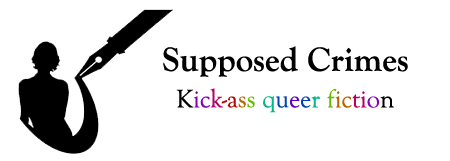
Today's writing tips are all about the editing stage. Although I'm an author, my primary job is as a professional editor and proofreader (not quite the same thing, though linked). I've edited all kinds of writing, both self-published and traditionally published. I've worked on fiction, non-fiction, memoir, and even a couple of PhD dissertations.
Here are some of the things that make it easier for me to do my job and for you to get the most out of your relationship with an editor:
1. Go over it yourself beforehand. A lot.
The biggest thing is that you should not ever send a rough draft to your editor. No one's first version is good. Not mine, not yours, not even Stephen King's or J.K. Rowling's. No one's. It's your job as the author to prune it before an editor even sees it. It isn't our job to rewrite your first draft for you or even to tell you all the things to fix or change.
2. Have at least one other person read it.
Good beta readers are gold. Not just for the author but for your editor. They will spot significant things like plot holes and poor characterization. Of course, you don't have to have one, but it does help. Just be very clear what you need from your beta readers, and choose people who you trust to tell you if there's a problem.
3. Don't try to fix picky details.
Different publishers use different style guides, and it also differs depending on the type of manuscript. There's lots of agreement between guides, but there are also places they part ways. Your proofreader will clean all that up for you. Focus on things like flow, word use, and structure rather than on punctuation.
4. Do more listening than arguing.
There are reasons why editors make changes and suggestions. You're free to reject the changes, of course, but you can always ask why it was done. There's a chance you won't interact with your editor or proofreader again (it happens sometimes with publisher-assigned editors at small presses). In that case, use any of the dozens of online resources to check which of you is right.
5. Make notes.
If you're using dialect or slang or made up words, alert your editor. You still may have some places where you need to discuss it, but at least this way you've prevented the bulk of random corrections.
6. Be patient.
Editing and proofreading take time. The cleaner the copy, the less time it takes, of course. But even so, it's a lengthy process. If you're concerned, ask up front for an estimate. Unless your editor exceeds that without notice, don't contact them in between. It slows the process if you message them every day with questions. Save them up and ask once you have your manuscript back.
Obviously, this is a two-way street. Next week, I'll offer some advice going the other direction. Having a belligerent editor is no more fun than an editor being bullied by a client. Until then, happy writing (and editing)!
